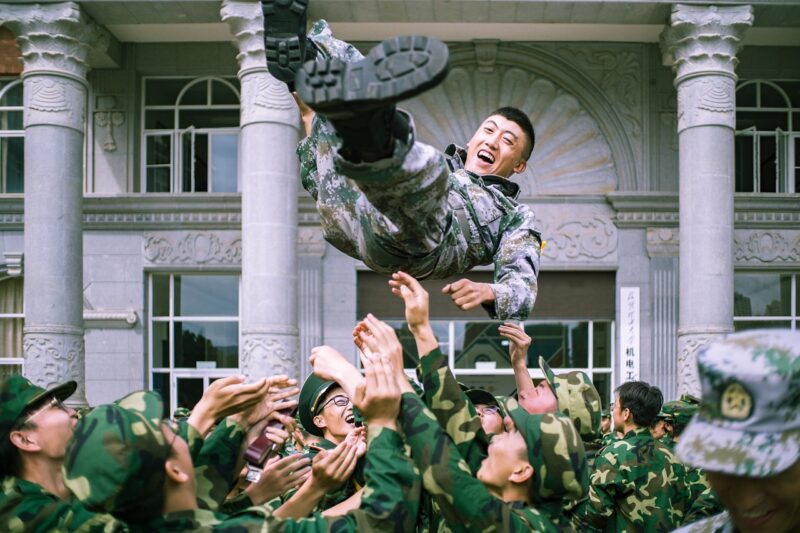How Military Training Has Adapted to Prepare Soldiers for Digital Age Warfare
November 16, 2024

In the 21st century, warfare has undergone a seismic shift, characterized by the rapid evolution of technology. The advent of cyber operations, drones, artificial intelligence (AI), and information warfare has fundamentally transformed the battlefield. Thus, military training programs are evolving to keep pace, ensuring that soldiers are equipped to navigate this complex landscape. This article explores how military training has adapted to prepare soldiers for digital age warfare, highlighting key developments, methodologies, and tools deployed in modern military education.
1. The Changing Nature of Warfare
Modern warfare is defined not only by kinetic confrontations but also by a strong cyber and information component.
– **Cyber Warfare:** Cyber attacks can disrupt critical infrastructure, steal sensitive data, or even manipulate public perception through misinformation. Military forces must now include cyber operations in operational planning and execution.
– **Information Warfare:** With the proliferation of social media and digital platforms, the battlespace has expanded to include the cognitive domain, requiring military forces to conduct psychological operations effectively.
– **Multidomain Operations:** Soldiers must understand how to operate across air, land, sea, space, and cyber environments. Military training programs must now integrate knowledge across all these domains.
2. Integrating Technology into Military Training
The integration of technology in military training has created new learning environments.
– **Simulations and Virtual Reality (VR):** Training programs now utilize advanced simulations and VR technology to recreate realistic battlefield scenarios. These immersive experiences allow soldiers to practice decision-making and tactics without the risks associated with live training.
– **Artificial Intelligence (AI) Systems:** AI is being leveraged to analyze vast amounts of data to inform training strategies. Machine learning can identify areas where soldiers need improvement and tailor training modules accordingly.
– **Networked Training Environments:** Modern militaries are utilizing networked systems that allow soldiers to train together in real-time, regardless of location. This is especially important for multinational forces that must conduct joint operations seamlessly.
3. Emphasizing Cyber Skills and Cyber Hygiene
With the increasing importance of cyber capabilities, military training has placed a significant emphasis on developing soldiers’ cyber skills.
– **Cybersecurity Training:** Soldiers receive training on cybersecurity protocols to protect sensitive data and mission-critical information. This includes understanding cyber vulnerabilities and implementing preventive measures.
– **Cyber Operations:** Specialized units now focus on offensive and defensive cyber operations. Soldiers are trained to conduct reconnaissance, develop infiltration techniques, and execute appropriate responses to cybersecurity threats.
– **Understanding Information Warfare:** Training also incorporates skills related to information dissemination, countering misinformation, and leveraging social media for operational advantage.
4. Promoting Adaptability and Critical Thinking
In the unpredictable environment of modern warfare, adaptability is key.
– **Critical Thinking Exercises:** Military training now includes critical thinking exercises, helping soldiers analyze complex situations and make informed decisions under pressure. This includes understanding the implications of digital engagement and cloud decision-making.
– **Scenario-Based Training:** Rather than following a set playbook, modern military training emphasizes scenario-based learning where soldiers must adapt to rapidly changing circumstances, enabling them to think on their feet.
5. Collaboration with Private Sector and Academia
To remain at the cutting edge of technological advancements, militaries are increasingly collaborating with the private sector and academia.
– **Partnerships with Tech Companies:** The military engages in partnerships with tech companies to leverage their expertise in areas such as AI, cybersecurity, and data analysis to create advanced training programs.
– **Research and Development:** Working with universities allows the military to tap into research on emerging technologies and training methodologies, fostering innovative approaches to soldier preparation.
– **Tech Bootcamps:** Some militaries now offer bootcamps that focus on advanced tech skills, creating a workforce ready to tackle the challenges of digital warfare.
6. Importance of Continuous Learning and Feedback
The pace of technological change necessitates a commitment to lifelong learning within military training.
– **Feedback Loops:** Incorporating feedback loops into training helps soldiers learn from experiences and refine their skills continuously. This could include after-action reviews (AARs) to assess training effectiveness and adapt accordingly.
– **Online Learning Platforms:** Many militaries are adopting online learning platforms that enable soldiers to engage in self-directed learning, providing access to a wealth of resources and training materials to supplement their on-ground training.
Conclusion
As warfare continues to evolve in the digital age, military training must also adapt to ensure soldier readiness. By integrating technology, emphasizing adaptability, and fostering collaboration with the private sector, military organizations are well on their way to preparing their forces for the challenges of modern warfare. The emphasis on cyber capabilities, critical thinking, and continuous learning will empower soldiers to respond effectively to a new generation of threats, securing strategic advantages on the battlefield of tomorrow.
Whether through technological enhancements or innovative training methodologies, it is clear that modern military training is more critical than ever in preparing soldiers for the complexities of the digital battlefield. As nations face increasingly sophisticated adversaries, robust and adaptive military training will remain a cornerstone of military effectiveness in the digital age.







